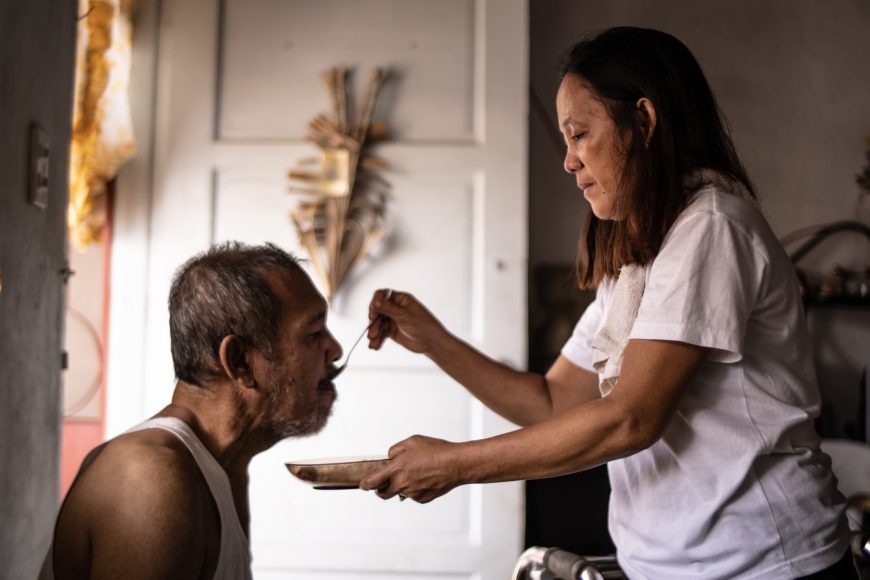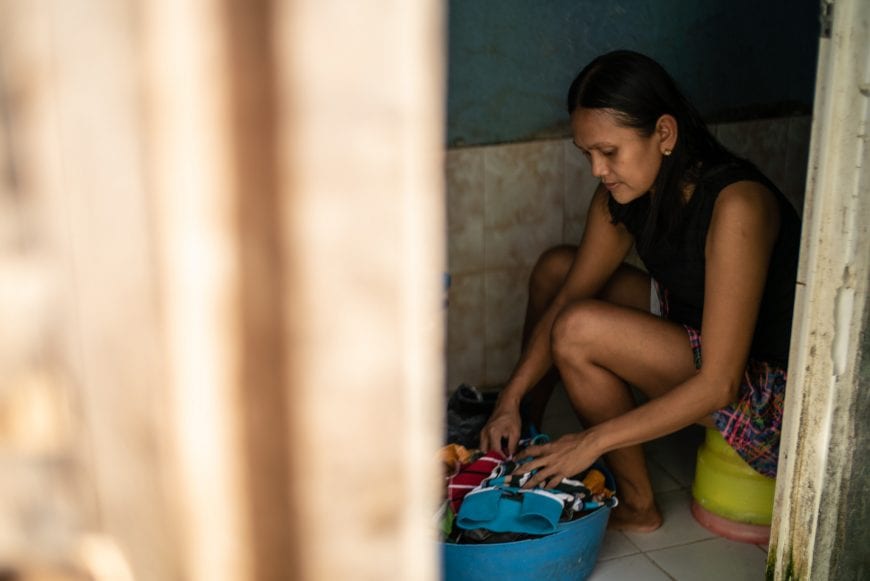
New Oxfam Report Reveals Sexist Economy
Women and girls put in 12.5 billion hours of unpaid care work each and every day, a contribution to the global economy of at least $10.8 trillion (NZD$16 trillion) a year, and more than three times the size of the global tech industry, reveals a new report from Oxfam today ahead of the World Economic Forum (WEF) in Davos, Switzerland.
Oxfam’s report, ‘Time to Care’, shows how our sexist economies are fuelling the inequality crisis – enabling a wealthy elite to accumulate vast fortunes at the expense of ordinary people and particularly poor women and girls:
- The 22 richest men in the world have more wealth than all the women in Africa.
- The world’s 2,153 billionaires have more wealth than the 4.6 billion people who make up 60 percent of the planet’s population
- Getting the richest one percent to pay just 0.5 percent extra tax on their wealth over the next 10 years would equal the investment needed to create 117 million jobs in sectors such as elderly and childcare, education and health.
- The minimum estimated value of unpaid care in New Zealand is NZD$41.4 billion.
Global inequality is shockingly entrenched and vast and the number of billionaires has doubled in the last decade. Oxfam India CEO Amitabh Behar, who is in Davos to represent the Oxfam confederation this year said: “The gap between rich and poor can’t be resolved without deliberate inequality-busting policies, and too few governments are committed to these.
“Women and girls are among those who benefit least from today’s economic system. They spend billions of hours cooking, cleaning and caring for children and the elderly. Unpaid care work is the ‘hidden engine’ that keeps the wheels of our economies, businesses and societies moving. It is driven by women who often have little time to get an education, earn a decent living or have a say in how our societies are run, and who are therefore trapped at the bottom of the economy,” added Behar.

Women do more than three-quarters of all unpaid care work. They often have to work reduced hours or drop out of the workforce because of their care workload. Across the globe, 42 percent of women cannot get jobs because they are responsible for all the caregiving, compared to just six percent of men.
Women also make up two-thirds of the paid ‘care workforce’. Jobs such as nursery workers, domestic workers, and care assistants are often poorly paid, provide scant benefits, impose irregular hours, and can take a physical and emotional toll.
The pressure on carers, both unpaid and paid, is set to grow in the coming decade as the global population grows and ages. An estimated 2.3 billion people will be in need of care by 2030 – an increase of 200 million since 2015. Climate change could worsen the looming global care crisis – by 2025, up to 2.4 billion people will live in areas without enough water, and women and girls will have to walk even longer distances to fetch it.
The report outlines practical and powerful ways we can recognise, reduce and redistribute this care work. One solution is to make essential public services and infrastructure free and available to all – services like primary healthcare, public transport, early childhood education, water, and care for people who are sick or older. This can be funded through taxing wealth.
Oxfam New Zealand’s executive director Rachael Le Mesurier said Kiwis have an opportunity during an election year to challenge the status quo and demand politicians create change.
“This year, we need to put the global economy on the right track so that we value the right things – including the care work of millions of women and girls – instead of billionaires’ wealth.
“Extreme inequality exists because we have designed our economies to spiral wealth to the very richest people, at the expense of ordinary people. But we can build an economy that values everyone, not just the wealthy elite.
“Governments use tax revenue to invest in the public services that are vital to reducing inequality and poverty. By taxing wealth properly and increasing investment in public services, we can recognise women’s care work for the massive contribution it is to our societies, and help reduce the unfair burden of care work on women so they can get an education, earn a decent living, and have a say in how our societies are run.
“Let’s reset the economy to look after each other, not billionaires’ fortunes. Properly taxing wealth can help us do that.”
Notes
The report, summary and methodology document explaining how Oxfam calculated the figures is available here.
Oxfam’s calculations are based on the most up-to-date and comprehensive data sources available. Figures on the share of wealth come from the Credit Suisse Research Institute’s Global Wealth Databook 2019. Figures on the very richest in society come from Forbes’ 2019 Billionaires List. Billionaire wealth fell in the last year but has since recovered.
Oxfam is part of the Fight Inequality Alliance, a growing global coalition of civil society organisations and activists that will be holding events from 18-25 January in 30 countries, including India, Kenya, Mexico, Pakistan, South Africa, Uganda and the UK, to promote solutions to inequality and demand that economies work for everyone.
Currencies were converted using Reserve Bank of New Zealand figures on 31 December 2019.





